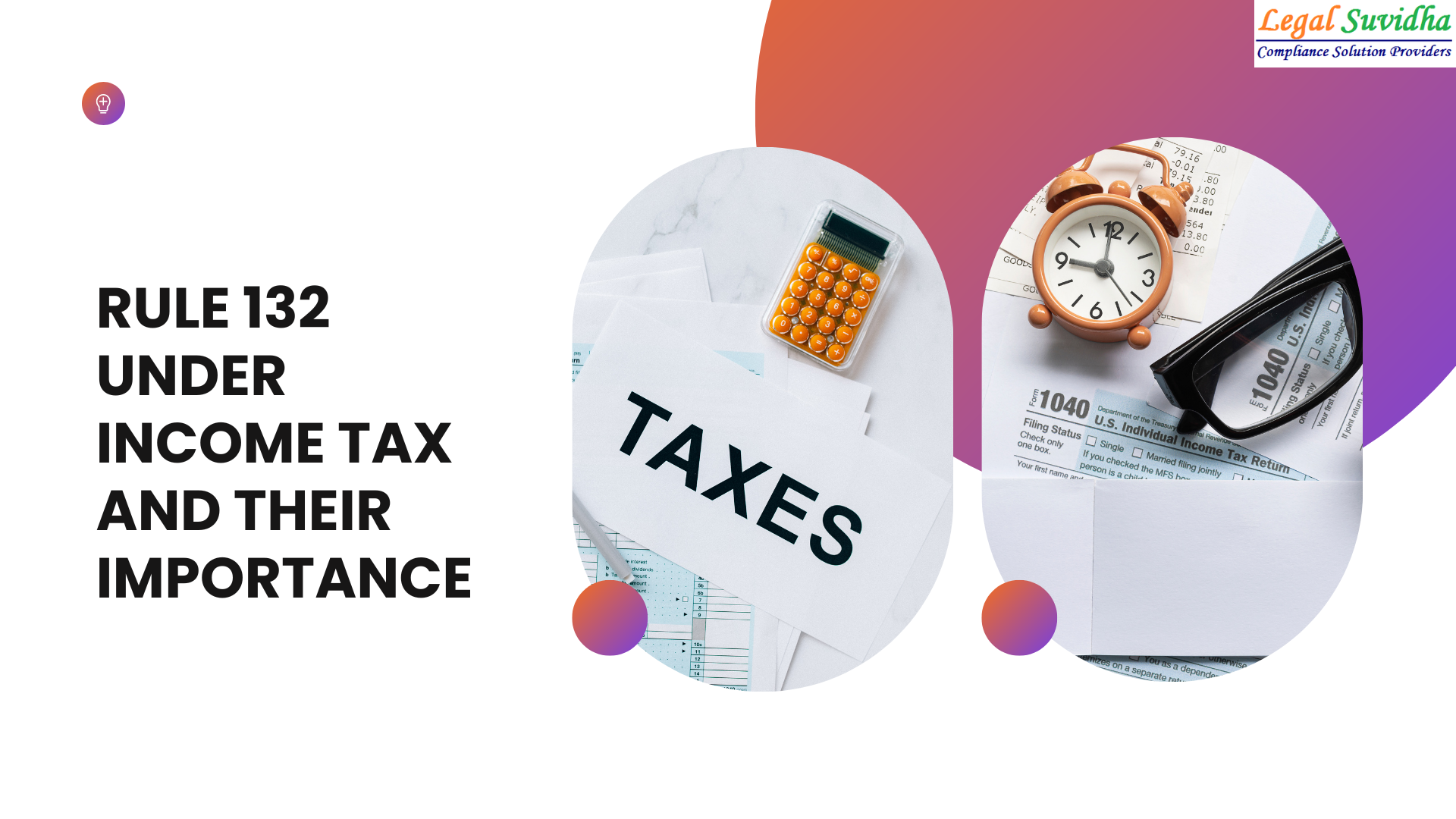RULE 132 UNDER INCOME TAX AND THEIR IMPORTANCE
The Central Board of Direct Taxes (CBDT) has introduced Rule 132, which came into effect on October 1, 2022. Rule 132, deals with the re-computation of income under sub-section 18 of section 155 of the Income Tax Act, 1961, in the Income Tax Rules, 1962. The new rule impacts individuals having income from business or profession and have availed deduction on cess/surcharge.
WHY WAS RULE 132 INTRODUCED BY CBDT?
- The new rule has been introduced in view of disputes over whether a cess or surcharge on income tax paid by businesses can be allowed as a deduction or not.
- While calculating the net taxable profit of a business, the law had clarified that income tax paid by a business cannot be allowed as a deduction. However, the law had not specified whether a cess or surcharge on such income tax is allowable as a deduction or not.
- Various businesses had been claiming deductions of such cess or surcharge in their tax calculations. These were disputed by the tax authorities but the courts in recent judgement had allowed the deduction for cess and surcharge.
- In Finance Act 2022, the Government clarified that a deduction for such cess and surcharge on income tax is not an allowable deduction from the taxable profit. The clarification was made by way of amendment of the income tax act with retrospective effect from 2005.
- However, the Government provided a one-time window, allowing those taxpayers who had claimed the cess or surcharges as a deduction from their taxable profits, to recompute their taxable profits after removing such cess or surcharge and deposit the tax on such income.
RULE 132 LAYS DOWN THE PROCEDURE FOR RECOMPUTING SUCH INCOME:
“Any taxpayer who has claimed deduction of cess or surcharge can share the details of their taxable income, tax paid and the amount of cess/surcharge claimed as a deduction with the tax authorities. The information is to be submitted electronically on the income tax portal using Form 69. On receipt of Form 69, the tax officer will recompute the taxable income of the taxpayer and inform the additional tax to be payable by the taxpayer. The taxpayer can then make the payment of tax and inform the tax officer of the payment of tax in Form 70. No penalty would be leviable on such payment.
BENEFITS OF RULE 132
- Rule 132 is a beneficial clause allowing assessees to comply with the provision of Section 155 which allowed Assessing Officers to re-compute the total income for such previous years in which the assessee would have claimed deduction of surcharge or cess subject to be disallowed u/s 40(a)(ii).
- This recomputation invariably attracts provisions of section 270A (3) wherein this disallowed surcharge is treated as under-reported income and subject to taxes and importantly penalties.
- As per the new Rule, an assessee can suo moto submit an application in the prescribed form for re-computation of income, without claiming a deduction for surcharge or cess and on payment of appropriate taxes (if any) in that case it would not be deemed as under-reported income hence no penalty will be levied under section 270A (3).
- This application has to be moved in form 69 on or before the 31st day of March 2023 for the re-computation of income under the new Income Tax Section 155(18), as inserted by the Finance Act, 2022. Taxes payable post recomputation of income have to be separately reported in form 70.
RULE 132 VS REVISED RETURNS
Rule 132 differs greatly from a revised return. A Revised return can only be filed up to 31st December 2022 for ITR filed for FY 2021-22 (AY 2022-23).
However, an assessee can file for re-computation of income all the way from FY 2004-05 (AY 2005–06) in Form 69 up to 31st March 2023







